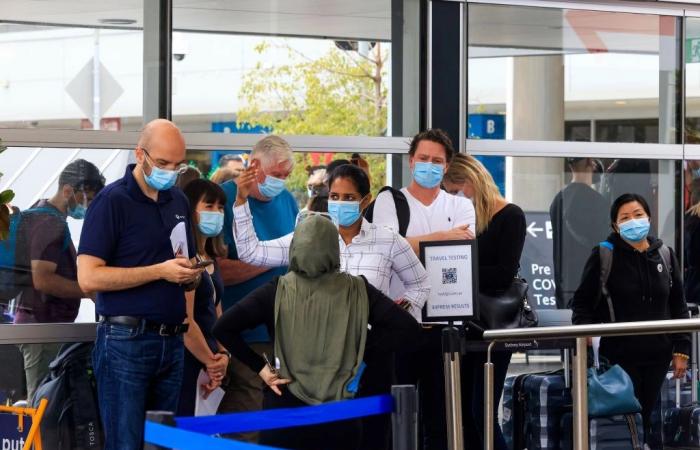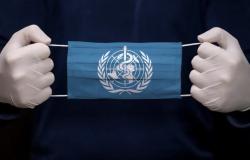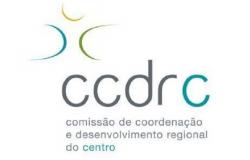
The South Australian government says responsibilities between state and federal governments have become blurred during the COVID-19 pandemic.
In an allegation to the federal Labor government’s COVID-19 Response Inquiry, South Australia said there was a crossover on issues such as border control, vaccines and aged care, noting there were “challenges and tension” in coordinating health care arrangements. emergency management.
“During the COVID-19 pandemic, there have been confusing responsibilities in some cases, with the pandemic exacerbating challenges with the architecture of the Federation,” the state government said (pdf ).
This raised some examples.
The Commonwealth had control “over overseas arrivals, while the states and territories were responsible for administering hotel quarantine schemes”.
Furthermore, the claim highlighted that the federal government had “responsibility for regulatory approval, purchasing and supply of vaccines, while states and territories became responsible for establishing mass vaccination clinics”.
Thirdly, it noted that while the Commonwealth was responsible for aged care, it relied heavily on the expertise of states and territories to provide support services during outbreaks in aged care facilities.
“The vertical fiscal imbalance embedded in Australia’s federation architecture means that while states and territories have responsibility for managing emergencies, the Commonwealth has access to the greatest financial resources to respond,” the state government said.
“In the future, we could consider whether usual funding mechanisms, such as National Partnership Agreements, are the most appropriate vehicle for emergency responses, including consideration of timeliness and flexibility to adapt as the response progresses.”
The state government has suggested that these functions can be clarified and improved in the future to ensure there is better use of resources across jurisdictions.
“In particular, there is a need to clarify future arrangements in a pandemic across all areas of service provision, from acute health services, quarantine, mass vaccination and testing arrangements.”
Furthermore, the South African government expressed that there was “extreme pressure” on the healthcare workforce at key points in the pandemic. The government said future planning must consider a response that supports the wellbeing of vital frontline and support staff.
The claim supported the National Cabinet agreements, saying they were successful in the initial phase of the pandemic.
Labor is in power in South Australia at the moment, however, the centre-right Liberal government managed the COVID-19 pandemic between 2020 and March 2022.
WA, Queensland and Tasmania share similar concerns
Western Australia (WA) Premier Roger Cook also highlighted the challenges around deciphering state and federal responsibilities during COVID-19.
“One of the key challenges during COVID-19 has been the lack of a clear delineation of state and territory and Commonwealth roles and responsibilities,” Mr Cook said.
“For example, although legislative responsibility lies with the Commonwealth, the quarantine of international and interstate travelers has been left to state and territory governments using State of Emergency powers.”
The state government’s claim also states that Western Australia has delivered “some of the best health and economic outcomes in Australia” through the use of short lockdowns, border controls and public health measures.
The Queensland government, in a largely positive statement about the pandemic response, said all jurisdictions would benefit from a “clearer delineation of roles and responsibilities” in the future.
“Greater clarity about the expectations of states and territories in the delivery of services that are normally considered a Commonwealth responsibility would deliver better outcomes for the Commonwealth,” the government said (pdf).
“Clear, principled service delivery agreements agreed by the Commonwealth, state and territory governments can help in this regard.”
The Tasmanian government shared these concerns, suggesting that the Commonwealth, states and territories agree clear roles and responsibilities before another crisis.
“This would avoid some of the problems that have resulted from ambiguity around roles and responsibilities during the COVID-19 pandemic,” the government said ( pdf ).
Couple disagrees
Ken Bairstow and his wife, Mrs. Bairstow, state that they were “treated like criminals and demonized” when they returned to Western Australia (WA) from their annual trip to the UK in 2020.
“We were forced to quarantine in the hotel for 14 days. We had to take two COVID tests during this period and the results were denied. We tested negative,” said returning Australian citizens (pdf).
“The room was filthy. We had no open windows or access to fresh air. We don’t change bed linen for 14 days. The family provided us with food. We were treated like criminals and demonized.”
The couple suggested that quarantine services should be a Commonwealth responsibility in future, with the government covering all costs.
Mr and Mrs Bairstow also suggested that quarantine should only be for infected or contagious citizens.
© Copyright. All Rights Reserved to The Epoch Times in Portuguese 2011-2018
Tags: COVID19 SURVEY Confused responsibilities state federal governments federal governments COVID19 Response Survey South Australia
--




